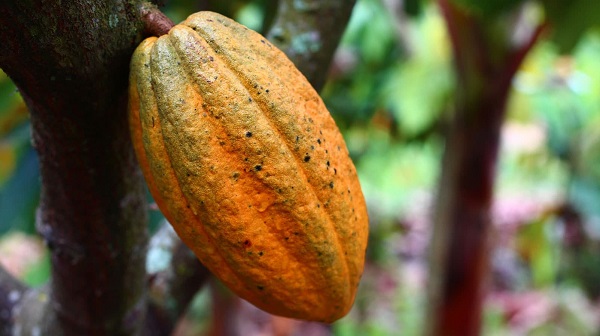Africa is rich in agricultural diversity and has the potential to become a global leader in crop exports.
With its vast arable land and favorable climates, the continent is home to a variety of crops that are not only vital for local consumption but also for international markets.
This article explores the top export crops in Africa, their significance, and how farmers can harness these opportunities to improve their livelihoods.
Key Export Crops in Africa
1. Cocoa
Cocoa is one of Africa’s most valuable cash crops, primarily produced in West African countries like Côte d’Ivoire and Ghana. These countries are responsible for over 60% of the world’s cocoa production. Cocoa is not only a significant source of income for farmers but also a critical component of the global chocolate industry.
Benefits for Farmers: By adopting sustainable farming practices and improving the quality of cocoa beans, farmers can fetch higher prices on the international market. Participating in fair trade cooperatives can also provide access to better pricing and funding for community projects.
2. Coffee
Africa is the birthplace of coffee, with Ethiopia being renowned for its high-quality Arabica beans. Other countries like Kenya and Uganda also contribute significantly to coffee exports. The global demand for specialty coffee continues to rise, offering African farmers opportunities to capitalize on this trend.
Benefits for Farmers: Farmers can benefit from diversifying their coffee varieties to cater to niche markets. Implementing organic farming practices can also enhance the quality of the coffee and allow farmers to charge premium prices. Engaging in direct trade relationships can further improve profit margins.
3. Tea
Kenya is one of the largest exporters of tea in the world, particularly black tea. The tea sector provides substantial employment and income for many smallholder farmers. With the growing popularity of herbal and specialty teas, the potential for expansion is significant.
Benefits for Farmers: Farmers can increase their income by producing specialty teas, such as organic or flavored varieties. Joining cooperatives can provide better access to processing facilities and markets, thus improving the overall value chain.
4. Cashew Nuts
Cashew production has been gaining momentum in several African countries, particularly in Mozambique, Ivory Coast, and Tanzania. The global demand for cashew nuts is rising, making it a lucrative crop for export.
Benefits for Farmers: Farmers can benefit from processing their cashews locally rather than selling raw nuts. This not only increases the value of the product but also creates local jobs. Training programs on best practices in cultivation and processing can further enhance profitability.
5. Cotton
Cotton is a major cash crop for many African countries, including Burkina Faso, Mali, and Egypt. The textile industry is a significant driver of economic growth, and African cotton is valued for its quality.
Benefits for Farmers: By adopting integrated pest management and sustainable farming techniques, cotton farmers can reduce input costs and improve yields. Accessing markets through cooperatives can also help in getting better prices for their products.
6. Fruits and Vegetables
Fruits such as bananas, mangoes, and citrus fruits, along with vegetables like tomatoes and onions, are increasingly being exported from African countries. Countries like South Africa, Egypt, and Morocco are leading in the export of fresh produce to international markets.
Benefits for Farmers: Farmers can improve their earnings by focusing on organic and high-quality produce, tapping into health-conscious consumer trends. Implementing efficient irrigation systems and practicing crop rotation can enhance productivity and sustainability.
Strategies for Farmers to Enhance Export Opportunities
1. Access to Quality Seeds and Inputs
Using quality seeds and agricultural inputs can significantly boost crop yields. Farmers should invest in high-yielding and disease-resistant varieties to improve production efficiency.
2. Training and Education
Participating in agricultural training programs can equip farmers with the latest knowledge on best practices, pest management, and sustainable farming techniques. Knowledge-sharing platforms and cooperatives can facilitate this.
3. Joining Cooperatives
By joining cooperatives, farmers can pool resources, access better prices for their products, and gain collective bargaining power in local and international markets. Cooperatives also provide valuable resources such as credit, training, and access to technology.
4. Embracing Technology
Utilizing technology can enhance farming practices. Mobile apps can provide weather forecasts, market prices, and farming tips. Precision agriculture tools can help in optimizing resource use and increasing yields.
5. Sustainable Practices
Adopting sustainable farming practices not only helps protect the environment but can also enhance marketability. Consumers are increasingly seeking products that are produced sustainably, and certifications can help farmers tap into premium markets.
6. Exploring Direct Trade Opportunities
Engaging in direct trade with international buyers can increase profit margins for farmers. Building relationships with importers and understanding market requirements can help farmers secure better deals.
Conclusion
Africa’s agricultural potential is immense, and its top export crops offer significant opportunities for farmers to enhance their livelihoods.
By leveraging sustainable practices, improving access to resources, and embracing technology, farmers can tap into the growing global demand for these crops.
The journey towards becoming leading exporters requires collaboration, education, and innovation, paving the way for a prosperous agricultural future in Africa.
Also Read
How cold chain logistics is reducing food waste in agriculture
Leveraging IoT in grain silos: A new era of precision grain management
